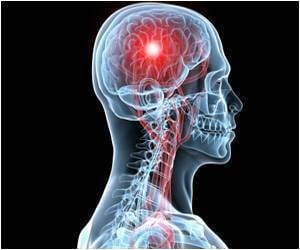Researchers at Johns Hopkins have found that individually harmless genetic variations affecting related biochemical processes may team up to increase the risk of schizophrenia.

Most geneticists believe that the culprit in so-called complex genetic diseases such as schizophrenia is not just one genetic variant, but more than one acting in concert. It's also likely that individual cases of the disease are caused by different combinations of variants, Avramopoulos says. He and fellow researchers took this hypothesis a step further, theorizing that while our bodies can usually compensate for one faulty gene that affects a particular system, more than one hit to the same system is likely to tip people toward disease.
The research team devised a technique for analyzing gene-sequencing data that explores whether variants cluster in a subset of cases in a non-random way. After finding support for their hypothesis in previously obtained data on 123 families with at least two schizophrenia-affected members, they decided to sequence genes connected through a biochemical chain reaction that has been linked to the disease in 48 inpatients. Known as the neuregulin signaling pathway, that chain reaction relays signals within the nervous system.
As they had predicted, the researchers found that some of the families had multiple neuregulin signaling-related variants while others had none, a distribution that was highly unlikely to result from chance. Moreover, the schizophrenia patients with neuregulin signaling variants experienced more hallucinations but less impairment than the other schizophrenia patients in the study.
"These results support the idea that there's no single genetic recipe for schizophrenia, but that a buildup of mutations in a pathway related to the disease - like neuregulin signaling - can be the culprit," Avramopoulos says. "The results are also evidence for the current theory that schizophrenia isn't a single disease at all, but a suite of related disorders." Those patients in the study who did not have neuregulin signaling-related variants likely carried variants in a different pathway instead, he notes.
While the results of the study were surprisingly clear-cut given the small number of families in the study, Avramopoulos cautions that larger studies are needed to confirm the results before drawing any firm conclusions. He also plans to study the exact roles of the schizophrenia-linked variants the team identified. Finally, the encouraging results mean it would be worthwhile to apply the new analytic method to other common diseases, such as diabetes and heart disease, which also appear to have complex genetic roots.
 MEDINDIA
MEDINDIA




 Email
Email










